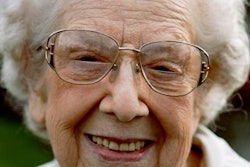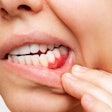
University at Buffalo (UB) researchers have received a major grant to conduct a prospective study of the oral microbiome and periodontitis in postmenopausal women.
The study will investigate a critical gap in knowledge of the composition and role of the oral microbiome and will consider, in particular, the microbiome of the subgingival area beneath the gums and especially between the gums and the basal part of the crowns of the teeth. Researchers theorize that certain compositions of this diverse microbiome will be associated with periodontal disease prevalence, severity, and progression over time.
This study may have impact even beyond the immediate results, according to Jean Wactawski-Wende, PhD, a professor in the department of epidemiology and environmental health at the UB School of Public Health and Health Professions and the director of the Women's Health Initiative's Buffalo Center.
"We expect our results to lay the foundation for the study of the association of the oral microbiome to the development of other chronic diseases of aging," she stated in a press release.
The National Institute of Dental and Craniofacial Research of the National Institutes of Health is funding the study with an interdisciplinary bioinformatics grant of $3.99 million.
There is no prospective epidemiologic study as large and rich with available data resources that can address the cutting-edge questions the researchers are proposing on the oral microbiome and its relationship to periodontitis in postmenopausal women, Dr. Wactawski-Wende noted.
The study will build on existing data from the Buffalo OsteoPerio Study, a study ancillary to the Buffalo Women's Health Initiative that involved a well-characterized cohort of postmenopausal women from western New York. The baseline study was conducted from 1997 to 2001, with a five-year follow-up between 2002 and 2006.
In that study, researchers concluded that five-year changes in periodontal measures among generally healthy postmenopausal females were, on average, small and did not suggest a consistent pattern of disease progression (Journal of Periodontology, May 2013, Vol. 84:5, pp. 572-584). The authors did note that women with a history of severe periodontitis or osteoporosis may experience accelerated oral bone loss despite stability or small improvement in routine probing measures.
The new study will bring the subjects back about 15 years postbaseline to look at how their microbiome has changed. Researchers will use frozen subgingival plaque samples from that study collected at baseline and postbaseline at year five; data from standardized oral exams that will characterize the extent of subjects' periodontal disease; and extensive information on personal factors, such as smoking, dietary intake, obesity, diabetes, and hormone use, and overall health status.
Co-principal investigator Robert J. Genco, DDS, PhD, a distinguished professor in the department of oral biology and microbiology at UB, explained that new techniques to characterize biofilm, made available very recently, have enabled them to conduct this new research.
The techniques involve next-generation sequencing using culture-independent techniques to identify 16S rRNA genes, and allow for a more complete and detailed characterization of the microbial composition and diversity of the human oral cavity, Wactawski-Wende noted.
The study will involve investigators from the UB School of Medicine and Biomedical Sciences, the UB School of Dental Medicine, the UB School of Public Health and Health Professions, UB's New York State Center for Excellence in Bioinformatics and Life Sciences, and the new Genomic Medicine Network, which is led by UB and the New York Genome Center.



















